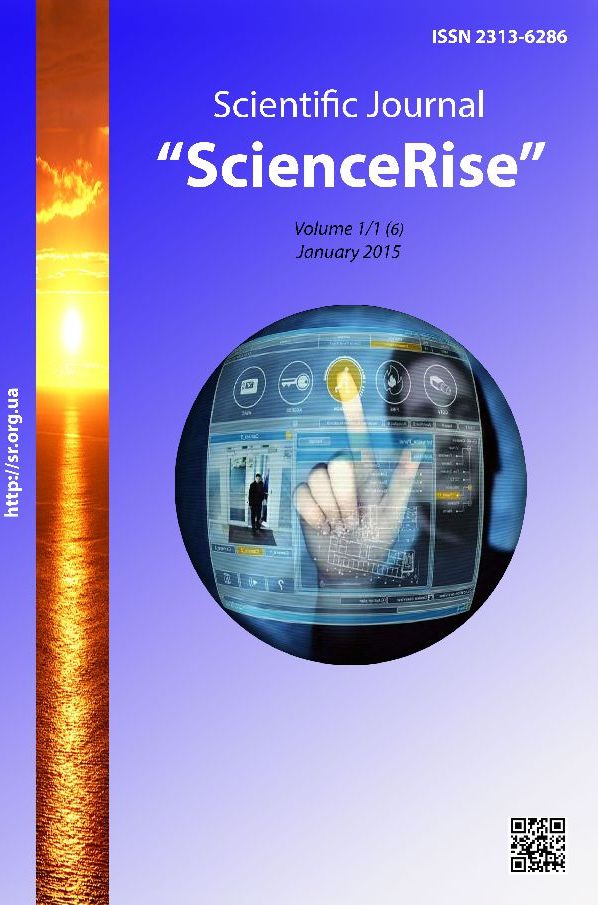Y. Romanchuk’s draft laws as a legal basis for democratic development of galician society
DOI:
https://doi.org/10.15587/2313-8416.2015.36172Keywords:
constitutional laws, national parliamentary representations, national and territorial autonomy, electoral reformAbstract
It is analyzed the legislative activity of Y. Romanchuk as a Chairman of People's Council, the leader of Ukrainian National Democratic Party, the leader of Ukrainian parliamentary representation in Galician Sejm (1883–1897) and State Council in Vienna (1891–1897 and 1901–1918). It is summarized his contribution in the development of draft lows, that have contributed to democratization of Galician society and served as the legal basis for the official recognition of the Ukrainian national movement and legitimacy of the recovery process of Ukrainian statehood in Austro-Hungarian monarchy
References
Romanchuk, Y. (1890). From the speech at the second general meeting of the People's Council: Dilo.
Stenograficzne sprawozdania Sejmu krajowego Krolestwa Galicyi I Lodomeryi wraz z wielkiem Księstwem Krakowskiem z roku 1895/96 od 28 do grunia 1895 8 lutego 1896, 69.
Republik Österreich. Parlamentsdirektion (Abt. Parl.Dok. / Archiv) 508. Sitzsung der XI. Session am 6. Juni 1896. S. 25832.
Monolatiy, I. (2009). "Viribus unitis". The institutionalization of the political system of Austria-Hungary, forced initiative and halfdeclarations: Bulletin of Prykarpatskiy University. History, 16, 218–219.
Matskevych, M. (1998). The development of the national idea in Galicia in the context of the Constitution of Ukraine:Ukrainian right, 11, 107.
Arkusha, O., Mudryy, M. (1999). Russophilism in Galicia in the mid-nineteenth and early twentieth centuries: genesis, stages of development, outlook: Bulletin of Lviv National University. History, 34, 75–76.
Romanchuk, Y. (1896). Galician matter before Vienna Parliament. Spravozdanye of debate over nahlyachym amended ambassador Romanchuk after stenographic protocols. Lviv: Circulation of Strusevych. Moscow, 4.
Discussion of immediate implementation of ambassador Romanchuk (1896). Dilo. The Constitution in Galicia. Dilo, 13 April, 25, 26 September.
Efremova, N. (2010). Restructuring law on elections to the Austro-Hungarian Empire in Galicia and Bukovina State and Law, 48, 82–83, 87.
Monolatiy, I. (2009). The determinant factors of political participation (Western paradigm of transitional period): Bulletin SevNTU. Issue 100: Political Science. Sevastopol: Publishing house SevNTU, 58–59.
Dilo (1901). 30 May (June 12).
Adress of Ambassador Romanchuk at meetings of budgetary Commission (1901). Dilo, 30 May (June 12).
Tsutsura, T. (1917). Ukrainian fight in Vienna parliament for universal suffrage and national autonomy: Ukrainian historian, XVII, 1-4 (65-68), 51–52.
Romanchuk, Y. (1908), To my electorate. Spravozdanye from my embassy activity in the 1901-1907, 26.
Dilo (1903). 20 November 3 (December).
Dilo (1906). 18 (31) January.
Dilo (1906). 11 (24) January, 26 January (February 8).
Dilo (1906). 14 February
Doroshenko, D. (1993). History of Ukraine: with pictures: For schools and families: Kyiv, 204.
Downloads
Published
Issue
Section
License
Copyright (c) 2015 Андрій Ігорович Мельник

This work is licensed under a Creative Commons Attribution 4.0 International License.
Our journal abides by the Creative Commons CC BY copyright rights and permissions for open access journals.
Authors, who are published in this journal, agree to the following conditions:
1. The authors reserve the right to authorship of the work and pass the first publication right of this work to the journal under the terms of a Creative Commons CC BY, which allows others to freely distribute the published research with the obligatory reference to the authors of the original work and the first publication of the work in this journal.
2. The authors have the right to conclude separate supplement agreements that relate to non-exclusive work distribution in the form in which it has been published by the journal (for example, to upload the work to the online storage of the journal or publish it as part of a monograph), provided that the reference to the first publication of the work in this journal is included.

